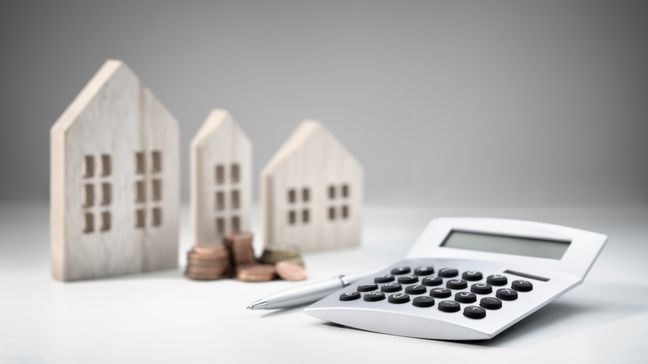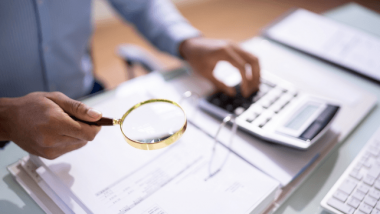You opened your mailbox waiting for a funny delivery or a useful coupon. But instead, the mail brought you an unexpected financial inconvenience—a property tax bill.
Property taxes are an inevitable expense for all homeowners. But receiving a property tax bill in the mail can still be a big surprise.
Once you get over the initial sticker shock, it’s time to take action.
Don’t panic: Most lenders use an escrow account to pay property taxes.
When you close your home loan, the lender will usually set escrow account. The purpose of this bill is to cover real estate related expenses, including your real estate tax bill..
The escrow account is funded by a portion of your monthly mortgage payments.. Each time you send a monthly payment, your lender will set aside the appropriate amount to cover your property taxes for a year.
By the time your property tax bill is ready, the lender will have funds ready to be deposited into your escrow account. It is important to note that your property tax bill may change every year. In doing so, your monthly mortgage payment will fluctuate to reflect the new amount.
Read more: Why You Should Pay Attention to Property Taxes When Buying a Home
How to find out if you have an escrow account
Most homeowners will pay property taxes through escrow until their mortgage is paid off. But in some cases, your loan may not include an escrow account. If your lender has not opened an escrow account, you will have to pay your property tax bills yourself.
If you are not sure if your loan has an escrow account, You should find this information on your most recent mortgage statement.. But you can always contact your lender if these details are hidden in the fine print.
If you have an escrow account
If you have an escrow account that includes your property taxes, you don’t have to do too much to make sure your taxes are paid, but take the following steps to make sure:
- Call your lender. The loan service can provide a rundown of the steps you will need to take with their particular company.
- Submit a copy of the invoice. The mortgage lender may need a copy of the property tax receipt.
- Check your escrow balance. You should be able to check your escrow account balance through your lender. If all goes according to plan, there should be enough funds in this account to cover your tax bill.
- Come back to confirm the payment. The lender must process the payment of your property tax bill. But it would be reasonable to confirm that the servicer has fulfilled its obligations.
The process of paying property tax bills through an escrow account is easy on the budget. Instead of having to deal with a big bill once or twice a year, the lender helps you save on those big expenses with every mortgage payment.
An escrow account can save the day by avoiding major unexpected expenses.
If you do not have an escrow account
You may not have an escrow account associated with your mortgage. Or your escrow account may not include your property taxes. You will receive this information when you close. But if you’re unsure, the details should be on your most recent mortgage statement.
In addition, homeowners without mortgages will no longer have escrow accounts to cover their property tax bills.
Are payment plans available for homeowners without an escrow account?

If you do not have an escrow account, your only option is to pay your tax bill in full by the due date. But this may be easier said than done. After all, property taxes can quickly run into the thousands of dollars.
Depending on where you live, you may be able to pay this bill in monthly installments. However, this setting depends on your location.
You need to contact your local tax office to determine which payment plans are available to you. The tax office will also have information about any available payment discounts. In some cases, you can even get a discount by paying the entire bill before the due date.
What forms of payment are accepted?
When you decide how to save on these costs, you will also need to find the most affordable way to pay your bill. Your local tax office may allow you to pay in several ways, including:
- Check or money order by mail.
- Credit or debit card online.
- Credit or debit card on the phone.
- Electronic payment online.
Keep an eye out for any fees associated with different forms of payment. In many cases, you may have to pay a convenience fee to pay with a credit or debit card. This fee can be a fixed dollar amount or a percentage of your account. Either way, these fees can add up quickly!
Can I open an escrow account after the mortgage is closed?
If you don’t want to add a property tax task to your to-do list, you can set it up after you close the house.
You can work with a bank or other financial institution to set up an escrow account. To get started, you will need a copy of your tax bill. In addition, you will need a copy of your premium if you would like the escrow account to include these payments.
After you contact the bank, they will tell you how to send copies of your bills. In addition, you will likely need to sign an escrow agreement that will allow the bank to make payments on your behalf.
Finally, you will need to fund your account. As a rule, the bank requires payment two to four months in advance. At this point, you can make regular payments to an escrow account and the bank will pay your property tax bill from that account.
How much property tax will you pay?

The amount you will pay in property taxes will vary greatly depending on your property and location. But all property taxes are based on the appraised value of your home. As a rule, local authorities carry out the assessment of real estate in their area according to a set schedule. You may see your estimated value change every year or less.
Most local governments offer exemptions that can further reduce your tax liability. A few general exemptions are available for permanent residents of the property, senior citizens, and veterans.
After all exemptions, the local government will determine your tax bill. You can find out exactly how much you owe by contacting your local tax office. Typically, the amount you owe will be available online. But if not, here’s how to calculate it.
How to calculate property tax
- First of all, you need to determine the appraised value of your property. The appraised value is the percentage of the value of the home that is considered taxable. For example, the county values your home at $100,000. Local governments are taxed at 80% of the value. With this, you will pay taxes on $80,000 instead of $100,000.
- You will then need to find a windmill collection for your location. In essence, the factory fee is the local government’s current property tax rate. This information should be easy to find on your IRS website.
- Finally, multiply the mill tax rate by the estimated value. For example, if your appraised value is $80,000 and the property tax rate is 1.5%, you will have to pay $1,200 in property tax.
Summary
The property tax bill is one of many costs associated with the purchase of housing. But if the escrow account covers your property taxes, you may not have to worry about your savings being hit hard by those costs.
However, homeowners without a mortgage or a lender who doesn’t offer an escrow account will have to set aside for these significant out-of-pocket expenses.


